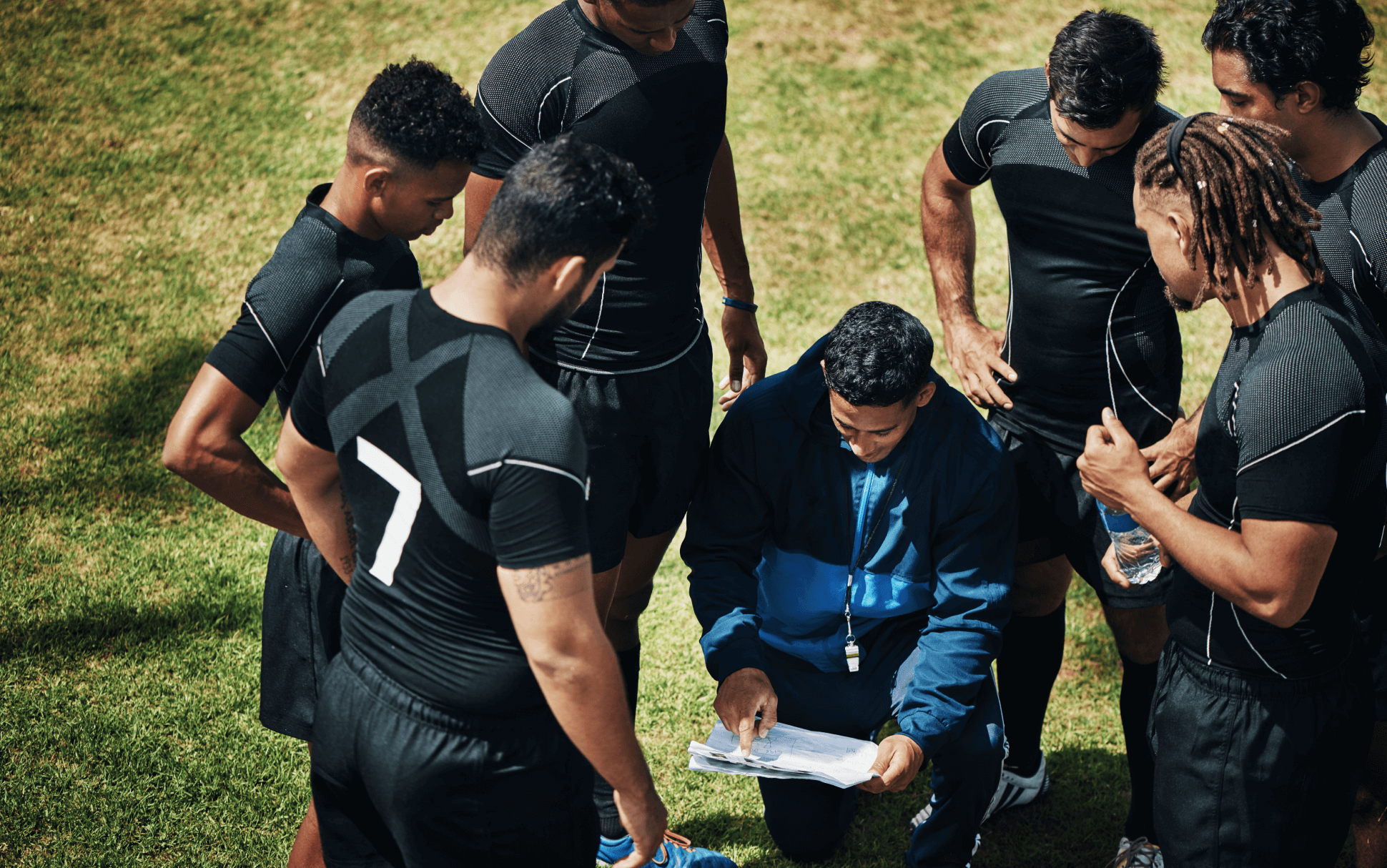Introduction
Previously there were no formal standardised requirements for those wanting to work as a fitness coach in European football. This meant that anybody could be employed by a club to work in this important role without any academic or practical qualifications, or even experience. This situation was not only undesirable, but also potentially dangerous. It also set the fitness profession out of sync with other supporting functions in the game (e.g. physiotherapists, doctors) for which qualifications were required.
In an attempt to remedy this situation, a number of national associations introduced their own courses for fitness coaches. While this is clearly a step in the right direction, it is still not mandatory to complete these courses. Course content and delivery methodologies also reflect the culture and current philosophies within those associations. Clearly, those that have introduced such courses should be applauded for their initiative; however, it is increasingly clear that, if the football fitness ‘industry’ is to claim any form of parity with peer professions, some standardisation and regulation is essential.
In recent years, the role of the fitness coach in football has become pivotal to maximising the health, fitness and well-being of players. These new UEFA fitness coach diplomas will introduce guaranteed minimum levels of knowledge and skills in practitioners (Chris Barnes, UEFA F4F AG member).
The UEFA Coaching Convention is the starting point for all coach education developments through the European governing body. This document outlines the national associations’ duties when it comes to delivering their coach education programmes, and applies to core (C, B, A and Pro) and specialist (goalkeeping, elite youth, futsal) coaching diplomas.
Recently, UEFA approved a proposal to roll out specialist fitness coaching diplomas at B and A level – and this will hopefully spearhead a move to truly professionalise the role of fitness coach. The medium-to-long-term goal of this project is to create a sort of ‘European passport’ for practitioners while giving employers a clear indication of the level of knowledge and skills possessed by potential employees.
@Chrisbarnes60 Tweet This
UEFA has Created New Qualifications for Fitness Coaches in Football. What is the Aim of These Qualifications and How are They Being Rolled Out?
The UEFA Fitness for Football Advisory Group (F4F AG) plays a key role in devising and delivering UEFA’s ‘fitness’ agenda, and in supporting and advising other specialist groups, such as medical, goalkeeping and grassroots. It also supports UEFA member associations’ own initiatives in fitness coach education and development. In 2020, the F4F AG conducted a survey of all member associations to obtain a pan-European picture of the current situation.
One important outcome of this survey (which was strongly endorsed by many of the respondents) was the need for standardised fitness coaching qualifications. This was based on their own observations of the lack of structure and governance for this profession, and a recognition that the care and welfare of players is often in the hands of their fitness coach. In response to this, a proposal to create new UEFA B and A fitness diplomas was presented to the UEFA Jira panel (comprising coach education experts) in late 2022 and was approved last spring.
Following consultation with over 30 national associations, the scheme was launched in the summer, and five were selected to join a pilot programme. On the basis of that experiment, it is expected that the structure and content will be appropriately refined before a general roll-out in 2024. UEFA is currently developing a range of ‘Share’ workshops for its members, to explain the requirements for designing and running these new courses.
The new UEFA B and A fitness diplomas will be run by the national associations’ coach education function. As for all UEFA coaching diplomas, they will apply the core reality-based learning and adult learning philosophies, which are highly interactive and respectful of the knowledge and skills participants bring to the programme. UEFA will support the roll-out at every stage.
How Are the UEFA Fitness Coach Diplomas to Be Structured and Delivered?
The new UEFA fitness diplomas are to be introduced at B and A level. The B diploma will focus on people working with youth and non-elite amateur players, while the A diploma will address the role of practitioners working in the elite youth and senior game. On graduating with a B diploma, coaches will be required to spend at least 12 months fitness coaching before progressing on to the A diploma.
The course structures are consistent with other UEFA coaching diplomas and are built on a syllabus of minimum content (SMC) that provides a framework that national associations can use to devise programmes that reflect their own football culture and philosophies. The SMC structure consists of the following:
- Pillars: the four pillars are the same as for other coaching diplomas: the fitness coach; the player and team; the training environment; the match
- Modules: overarching themes within each of the pillars
- Competences: more detailed description of the content of each module
The SMC also contains guidance on assessment strategies.
The diploma equips candidates with the skills and knowledge to competently and confidently fulfil the broad range of duties of the modern fitness coach. Modules embedded in the structure will explore such topics as coaching methodology; player physical development; training design, delivery and review; fitness testing and monitoring; performance analysis; and matchday performance.
UEFA actively promotes the use of ‘adult learning’ methodologies in all its coaching courses, in which candidates are active participants and learning experiences are highly interactive. Additionally, the courses are ‘reality-based’, with a ‘football first’ approach, in which the starting point is the game and the content purposely challenges candidates to link theory and practice. At A diploma level, national associations will use the concept of micro-groups, small groups of candidates who meet in their own working environment and address prescribed tasks under the guidance of tutors.
UEFA fitness diplomas promote a ‘football first’ approach, integrating practical game knowledge with fitness coaching for holistic player development
@Chrisbarnes60 Tweet This
What Are the Entry Requirements for These New Diplomas?
Applicants for the new fitness diplomas will need to satisfy certain general criteria.
- Coaching qualifications: UEFA strongly promotes a ‘football first’ approach, in which coach education is built upon the game itself. To give course administrators confidence in applicants’ knowledge of the game, and align with other specialist UEFA coaching diplomas, applicants will need to hold core coaching diplomas before entering the programme (C coaching diploma to take the UEFA B fitness course; B coaching or B fitness diplomas to take the UEFA A fitness course). However, in recognition of the fact that there are a number of highly experienced fitness coaches operating at the highest level, but without coaching qualifications, national associations will be given a transition period during which these coaches can be granted access to the fitness diploma courses without a UEFA C or B coaching diploma.
- Academic qualifications: The purpose of the new UEFA fitness coach diplomas is to produce high-quality coaches who can effectively translate theory into practice. To facilitate this process, it makes sense for applicants to possess a minimum level of core knowledge on entry, in order to get the most out of the time spent on the course, exploring how this knowledge informs practice. Candidates will therefore be required to possess at least a bachelor level of ‘knowledge’ in sports science or exercise science. Normally, this will be evidenced by a university degree in a suitable topic. However, it is recognised that there are high-quality practitioners without such university degrees, yet who have invested in personal and professional development and so do possess high levels of relevant knowledge and skills. In such cases, national associations can use an ‘aptitude evaluation’, involving alternative methods of verifying candidates’ competence.
- Experience: As with all other UEFA coaching qualifications, candidates will be expected to acquire coaching experience after completing their C core diploma (six months’ fitness coaching experience before starting the B fitness diploma) or B core/fitness diploma (12 months’ fitness coaching experience before starting the A fitness diploma).
From a Quality Assurance and Player Safety Perspective, What Impact Could the Introduction of These Qualifications Have?
We are all aware that the physical demands of football have continued to increase over the years. Preparing players to meet these demands is all the more challenging for coaches and support staff, and the role of the fitness coach has become pivotal. One of the primary goals of these new fitness diplomas is to create a population of coaches with the qualifications and skills to operate safely and effectively in the modern football environment.
As mentioned earlier, there is currently no legislation governing the qualifications and expertise expected of a football fitness coach. Of course, there are many highly experienced practitioners already working in the game, most of whom are also highly qualified. These new qualifications in no way undermine the expertise of these professionals, but provide national associations with minimum standards for their fitness coaches. They will also help employers to assess candidates for fitness coach positions. The main beneficiaries, however, should be the players, who can trust that the practitioners they train with will utilise the best up-to-date methodologies in their work.
The UEFA club licensing regulations set out employment standards for a number of professional club roles. It is expected that, in the long-term, the UEFA fitness diplomas will provide a similar basis for fitness coaches that will align with other specialist sectors, e.g. goalkeeping, elite youth.
New UEFA fitness coach diplomas aim to standardize qualifications, ensuring coaches meet high-quality standards for player physical preparation
@Chrisbarnes60 Tweet This
I Am a Fitness Coach. How Can I Access These New Courses?
The UEFA fitness coach diplomas will be delivered by the body’s member associations. At present (January 2024), five pilot programmes are running, but very soon we will invite other national associations to apply to run courses. The programmes will be run by the coach education departments, so this should be your first point of contact. In many countries we expect demand to initially far outstrip supply, and some form of selection procedure will be required.
In countries where domestic fitness qualifications already exist, a content mapping process will likely take place, so that those who have completed the domestic course may be given some credit for prior experience and learning, and may not be required to complete the whole programme. This will be managed case by case and in close cooperation with the UEFA administration.
The introduction of UEFA fitness coach diplomas is a step towards professionalizing the role, ensuring safe and effective practice in the sport



